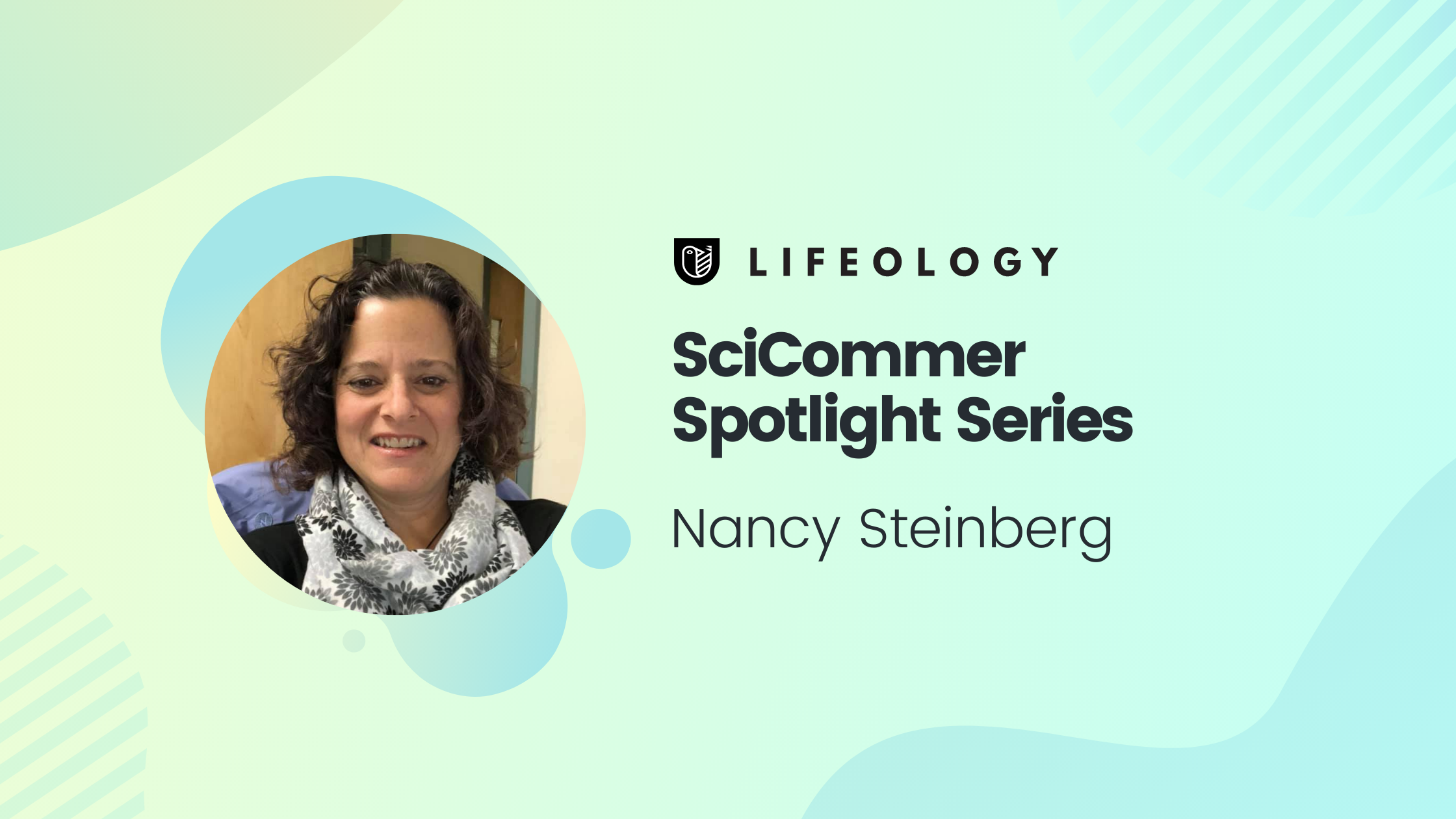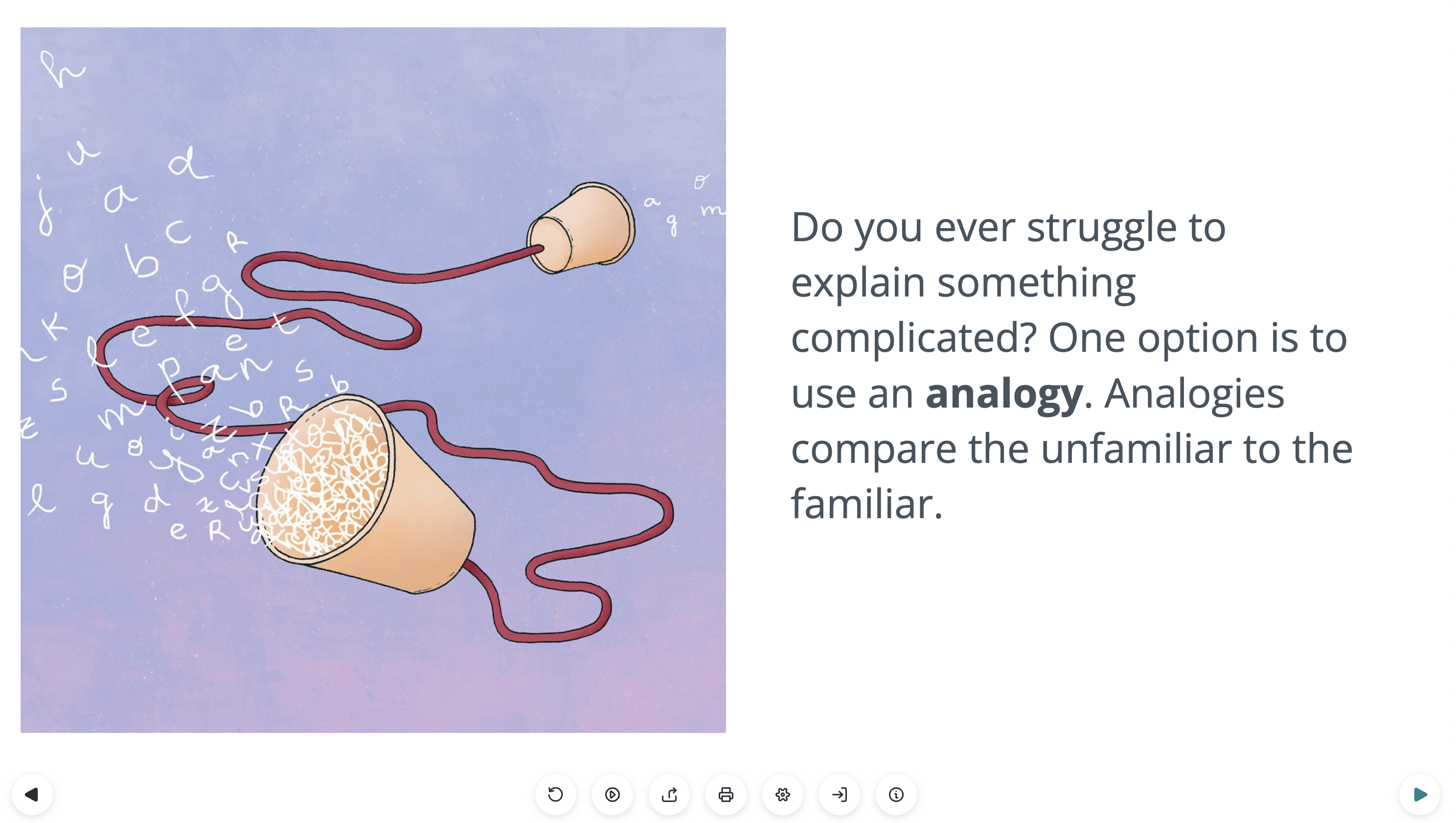We hear a variety of answers to the question: “Why SciComm?” No two SciComm careers look the same! If you’re interested in SciComm, there’s room for you here! If you want to pivot within the SciComm space, there’s room for that, too! Find what interests you with the help of hearing from a variety of SciCommers. Many have left the lab bench for a chance to expand their scientific knowledge beyond their single area of expertise. Others still work as scientists but engage with and serve the public through science communication. Some people even knew early on that they wanted to pursue science communication. We bring you all these stories and the stories in between in our SciCommer Spotlight Series. In this series of blog posts, learn about science communicators’ career paths, their favorite SciComm projects, and why they participate in SciComm. There’s also some advice for aspiring SciCommers!
Meet Nancy Steinberg!

Tell us a little bit about yourself
I have been doing science communication and outreach in various forms for about 30 years; I have been a science communicator (a writer, mostly) on the communications staff of the College of Earth, Ocean, and Atmospheric Sciences at Oregon State University for four years. I am originally from the East Coast but now live on the Oregon coast. I am working on a book for OSU Press about the history of an oceanographic sampling program that takes place off the Oregon coast. I love mountain biking, music, reading, and walking on the beach (oh, and my family too: husband is a fisheries biologist for NOAA and we have a 16-year-old son and a lovely mutt named Timber).
Did you always want to be a SciCommer?
I wanted to be a marine biologist from the time I was 8 years old, exploring beaches on Cape Cod. I got an undergraduate biology degree, then a master’s in marine science. Having always been a good writer, I found the thesis-writing part of the master’s the easiest and frankly most fun part, so I figured I needed to go in that direction professionally! I looked for jobs that would allow me to communicate science to “regular” people, without really knowing that “science communication” was a job category. I first worked for the non-profit that funded my master’s research – they also were responsible for outreach for one of the National Estuary Programs so I did a lot of that work when I started. When my husband and I moved to Oregon for his job 20 years ago, I became a communications/science writing contractor and freelancer. Before taking my job at OSU, I had pivoted again to more diverse kinds of writing, including feature writing on a range of topics for local publications, and I was the writer for a tourism campaign for a number of years. I was looking for new challenges when the OSU job was announced so the timing was perfect.
There’s a lot of different careers within SciComm. How did you choose which direction you wanted to go?
There was never any question that I wanted to write, as opposed to making videos or teaching or some other form of communication. I have always loved to write. As I mentioned, I was a freelancer for a while, but found the “hustle” to be a grind. At the same time, I have always LOVED academia and knew I would be happy at an academic institution. Promoting the cutting-edge science at a leading university was the ideal position for me.
What’s been your favorite part about working in SciComm?
I love the early phases of a project when I’m brainstorming ways to connect with whatever audience I’m trying to address. I love grappling with those questions – what metaphor can I use here? What does this audience really care about? How can I describe this phenomenon in an evocative yet accurate way? – and then seeing the answers reflected in a finished product.
What’s something about SciComm that you wish you knew before pursuing this career?
I wish I had more formal journalism experience–I came to the field via a science degree and feel behind on some basic journalistic skills. If I had known I was going into this field I would have sought out more training opportunities to learn and hone those skills. I also wish I had skills, even a little, in ancillary things like photography, graphic design and video editing.
What do you think is your most important job as a SciCommer?
I think my most important job is to (re-)instill trust in scientists such that audiences are receptive to the results of their research and understand its implications. The scientists I work with are grappling with some of the most important challenges we face: climate change, ecosystem degradation, environmental hazards and more. My job is to get people to understand what these scientists do and to trust the information that results from their research.
Tell us about your favorite SciComm project
Most recently, I co-founded and became the co-editor of a new research magazine called Strata. The debut issue was just published and I am over the moon at how it came out. I co-wrote the cover story about climate change and wildfire, which was a hugely challenging project in and of itself.
I am (still!) a big believer in the power of print media, maybe an unpopular opinion these days. To be able to start a publication from the ground up and be in control of everything about it, from the content to the type of paper it is printed on, is a real thrill.
What advice do you have for aspiring SciCommers?
- Take chances and opportunities even if they don’t seem like a perfect fit! My work for the tourism campaign gave me the opportunity to hone storytelling skills and learn more about social media, and I use these things all the time in my job now.
- If you have a chance, learn things I wish I knew, like photography, graphic design and basic layout, video editing, etc. You will be more marketable with those skills.
- Read science communication stuff! Read popular science books, read magazine articles, read read read!
- You can enter the SciComm field multiple ways–by getting a science degree (like I did) or by getting a journalism degree or multiple other pathways. There’s no “right” or “wrong” way to come to the field.




